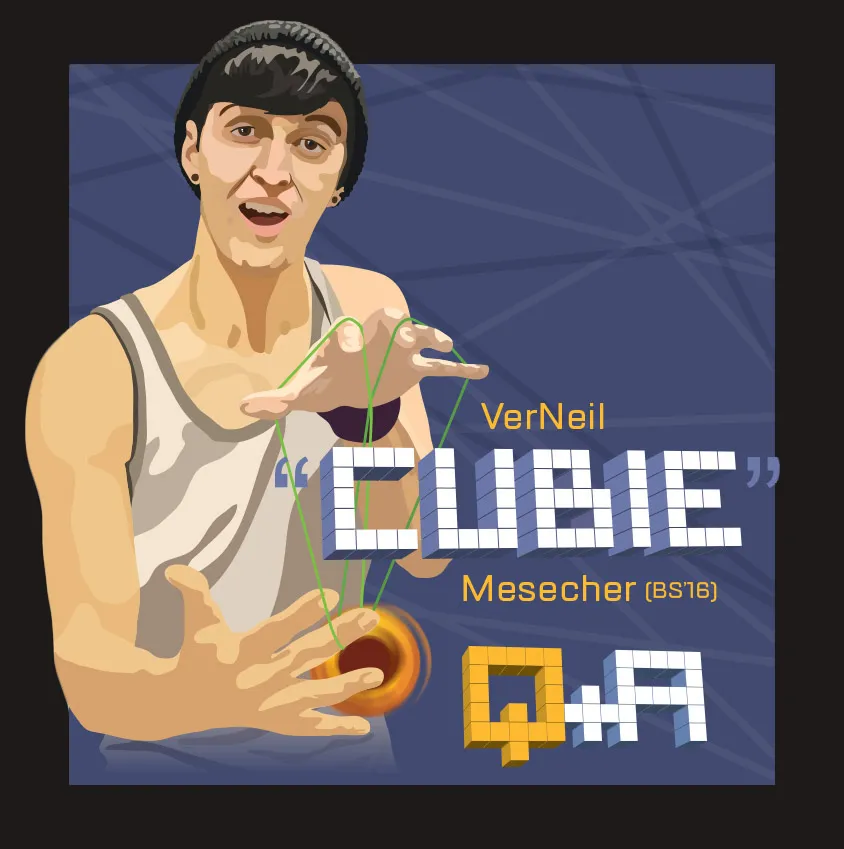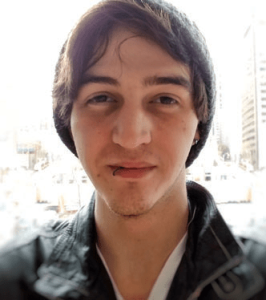CS Alumni Spotlight: VerNeil “Cubie” Mesecher

Via Erik Jonsson School Research Magazine — VerNeil “Cubie” Mesecher (BS’16) is an alumnus of the Jonsson School and the McDermott Scholars Program at UT Dallas. After completing a degree in computer science, he trekked to Seattle, Washington, to work at Amazon Web Services (AWS). His role as a systems development engineer is a blend of a traditional software engineer and systems engineer. In other words, he develops software that improves the operational excellence of existing services while reducing the time and investment needed to build new services. For AWS, this is an essential function, due to the large number of services and regions that it supports.
Cubie took time out of his busy schedule to answer a few questions about his experience at UT Dallas.

Q: How did UT Dallas prepare you to become a Systems Development Engineer?
A: UT Dallas has a great focus on preparation for a career in computer science. In my experience so far, the strongest engineers can communicate effectively, discuss solutions and step back to look at the larger picture. The Jonsson School does an unusually good job of teaching the soft-skills part of engineering careers.
Q: Can you tell me what a typical day at Amazon looks like for you?
A: A normal day at Amazon is hard to pin down. The culture is fast-paced (in a good way), and I often switch gears between writing and reviewing code; engaging in design or technical discussions with other teams; working on proposals for my own ideas and initiatives; and helping mentor other engineers.
Q. What sort of projects do you work on?
A: Currently, my team consults other internal teams about automation. With automation, an enormous amount of time and effort is saved, which allows engineers to focus on adding value to their products. When I engage with a team, I have to dive into their code and learn as much about the architecture and operations of their service as quickly as possible. Then I help highlight problem areas before contributing design and development to help fix those problems. Overall, I really enjoy the opportunity to work with a variety of experienced engineers and see how they solve problems.
Q: You also worked with the robotics club, led by Dr. Nicholas Gans, who is a clinical associate professor of electrical and computer engineering. Can you tell us a bit about that experience?
A: I worked with Dr. Gans for the first year and a half I was at UT Dallas. I initially worked on a project with his SeRViCE (Sensing, Robotics, Vision, Controls, and Estimation) Lab that involved building a set of 32 robots to act as chess pieces for a large chessboard that players could operate remotely. With Dr. Gans’s sponsorship, I also won an Undergraduate Research Scholar Award that allowed me to conduct independent research. I examined the efficiency of an unusual holonomic drive base, which allows robots to move in all directions and rotate independently. I am extremely grateful to Dr. Gans for his support and guidance.
Q: You worked on a National Science Foundation-sponsored project at Auburn University as a summer program. Can you tell me a bit about that experience?
A: I worked with Dr. Chase Murray on “Obstacle Detection and Avoidance for Unmanned Aerial Vehicles in GPS-Denied Environments”. That’s just a fancy way of saying, “Strap some sensors on this drone and try to make it not run into walls in the lab.” We used ultrasonic rangefinders attached to a Parrot AR drone to detect the locations of nearby objects and avoid them. We ran into many issues with this approach. However, I ultimately gained insight into the day-to-day work of researchers.
Q: As a sophomore in 2013, you started a yo-yo club: Can you tell us about that club?
A: I started the Yo-Yo Club to share my passion for yo-yo-ing with other hobbyists. It was a relaxed club, rather than another club with added responsibilities and pressures. We taught each other tricks, performed at events around campus and volunteered by giving performances or lessons for kids at festivals and charity events. We also had one member, Phillip Wang, who won the South Central Regional Yo-Yo Championships a couple of years ago and competed at Nationals! I think the members really enjoyed their time, which was the intent.
Q: Do you still yo-yo?
A: I do! I don’t have as much time as I wish I did, but I still make it a point to pick one up on a regular basis so that I don’t get too rusty. It’s a very relaxing and engaging activity for me.
Q: Do you have a favorite memory of your time here at UT Dallas?
A: One favorite memory is hard to pick. Honestly, the students and staff at UT Dallas made the experience amazing. However, if I had to choose, some of my favorite memories were of giving yo-yo performances at different talent shows and events around campus. Those always ended up being a lot of fun and led to some great friendships.
Q: What advice do you have for other students?
A: Don’t let failure stop you. Even with my successes in college, I also had my fair share of failures. I was rejected from every program I applied to my freshman summer. I ended up dropping my entire spring semester during my junior year due to mental health issues. I also initially struggled to find a job after graduation. I feel like most graduates feel a pressure to end up at big-name, resume-building companies right away, or else they are not doing well. Being successful has much more to do with getting past failure than it does with succeeding on the first try.
Source | Erik Jonsson School of Engineering and Computer Science Research Magazine — Alumni Spotlight
ABOUT THE UT DALLAS COMPUTER SCIENCE DEPARTMENT
The UT Dallas Computer Science program is one of the largest Computer Science departments in the United States with over 3,315 bachelors-degree students, more than 1,110 master’s students, 165 Ph.D. students, 52 tenure-track faculty members, and 44 full-time senior lecturers, as of Fall 2019. With The University of Texas at Dallas’ unique history of starting as a graduate institution first, the CS Department is built on a legacy of valuing innovative research and providing advanced training for software engineers and computer scientists.




